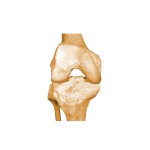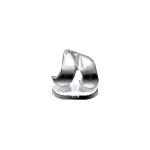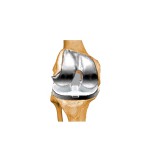Total Knee Replacement Surgery
The total knee replacement procedure has become a routine operation, boasting excellent success rates that consistently leave patients astonished at how it can significantly enhance their daily lives.
The goal of this operation is to eliminate the troublesome and painful symptoms that hinder common activities and often confine individuals to their homes.
For those suffering from knee arthritis, simple tasks such as grocery shopping, taking a stroll, or even sleeping can become nearly impossible. This operation aims to make these activities feasible once again.
Today, approximately 180,000 major joint replacement surgeries are performed annually in Italy, with around 90,000 of these being total knee replacements. This procedure is highly successful in improving the quality of life for eligible patients, with a satisfaction rate exceeding 92%. Despite its frequent success, total knee replacement surgery carries some risks.
We recommend reading this article for a better understanding of the topic.
Why might I need a total knee replacement?
You may need knee replacement surgery because the joint is severely damaged, and treatment with medication, physical activity, and physiotherapy alone has not been able to control pai. The knee is a hinge joint, consisting of the distal part of the femur (tight bone) and the proximal part of the tibia. The patella is also part of the knee joint.
Replacing the joint with a knee replacement is a highly successful operation, and approximately 92% of patients who undergo this procedure (almost 19 out of 20 people) report significant improvement after surgery.
The main advantage is pain control, and the benefit is immediate. There may also be an increase in movement, leading to a better ability to perform daily activities.
However, it is important to realize that an artificial knee will never be as good as a natural knee and that there are limitations compared to a healthy, natural knee.
What happens during the operation?
An incision will be made along the front of the knee. The damaged cartilage from both bones will be removed and replaced with the prosthesis, which is usually made of metal. This metal is forged to replicate the natural shape of the knee. The prosthesis will replace the lower part of the femur, and a metal plate will replace the upper part of the tibia. A plastic insert is typically placed between them, and these parts will (in most cases) be secured with a special bone cement.
The primary advantage is pain reduction, which is usually noticeable shortly after surgery. There may also be an increase in movement, depending on the condition of the knee before the operation, which will improve your ability to carry out daily activities. However, it is important to understand that an artificial knee is not as good as a natural one, and there will be some limitations.
As with all surgeries, there is a risk of complications. If the knee is severely damaged or worn out, or if you have other medical conditions, then the risk of complications may be higher.
Possible complications include:
- Wound infections
- Blood clots (thromboembolism)
- Nerve damage
- Bleeding
- Joint stiffness
A wound infection can be treated with antibiotics.
In the case of a deep wound infection, further surgery may be necessary.
The formation of a blood clot in the blood vessels can be prevented by administering medication, injections, or tablets for 4-6 weeks after surgery.
A fracture during surgery is rare, and its treatment will be assessed and resolved during the same procedure.
Nerves around the knee may be damaged during surgery, in which case further examinations may be required. Usually, nerves heal over time, but sometimes symptoms persist.
Please discuss these matters with your surgeon if you would like more information.
To reduce complications, you need to be in the best physical condition possible, thereby reducing anesthetic and surgical risks. It is vital that anyone undergoing surgery does their best to stay as fit as possible and avoids risky behaviors. If you feel unwell or your physical condition changes, you must inform your orthopedic surgeon.
If you are overweight, this condition will negatively affect the success of your operation, so it is recommended to lose weight before surgery. Excess weight puts more strain on the prosthesis, reducing its lifespan. Being overweight also affects the anesthetic risk. If you are overweight, you should try to lose weight before surgery through diet and exercise.
We recommend quitting smoking or at least drastically reducing it. Ideally, you should not smoke for at least one week before surgery.
Before surgery, you may be asked to have a preoperative visit to assess your health and undergo diagnostic tests.
You may undergo an electrocardiogram and an X-ray of the affected hip and chest. Blood pressure, pulse, and body weight are usually checked. Sometimes blood tests are required or simply reviewing previous test results. You will also be asked to perform a urine test to diagnose possible urinary infections.
Before surgery, you will be asked to stop eating and drinking for at least six hours. The reason is that consuming food or liquids can cause regurgitation during surgery, leading to serious anesthetic complications.
On the day of admission, you will be asked to report to a designated area for various formalities. Please bring your medications and all relevant medical documentation, including X-rays.
The most appropriate time for your surgery will be decided by our team and confirmed the day before. This order is indicative and may change on the day of the operation. In any case, you will be informed as soon as possible.
Yes, you should take your medications as usual. Exceptions include aspirin, clopidogrel, methotrexate, hormone replacement therapy, and oral anticoagulants (warfarin, acenocoumarol, etc.). Before stopping any therapy, consult your surgeon or anesthetist. If necessary, the anesthetist may administer anti-anxiety medication before the operation to help you relax.
The type of anesthesia will be decided by the anesthetist in consultation with you, considering your specific needs. The main options are general or spinal (epidural) anesthesia.
After surgery, you will be monitored in a safe area until the anesthetist is satisfied with your condition, at which point you will be returned to your room for further monitoring.
If you undergo general anesthesia, you will likely not remember much before returning to your room. You will probably wake up with an oxygen mask to help you recover better from anesthesia. You may also have an IV in your arm for hydration and a pillow between your legs to prevent movements that could put the prosthesis at risk.
You will feel pain at the surgical site, but medication will be provided to reduce it. Ask the nursing staff for additional pain relief if needed.
You should be able to eat or drink within an hour after surgery, provided you do not feel unwell and there are no specific instructions from your surgeon or anesthetist. A few hours later, you should be able to eat normal amounts of food and should make an effort to stay well hydrated.






